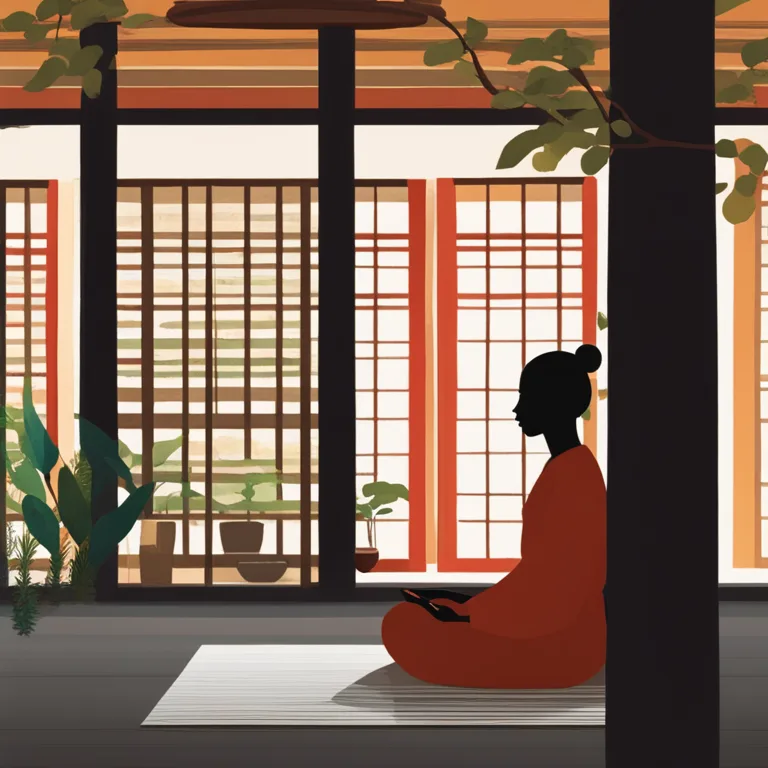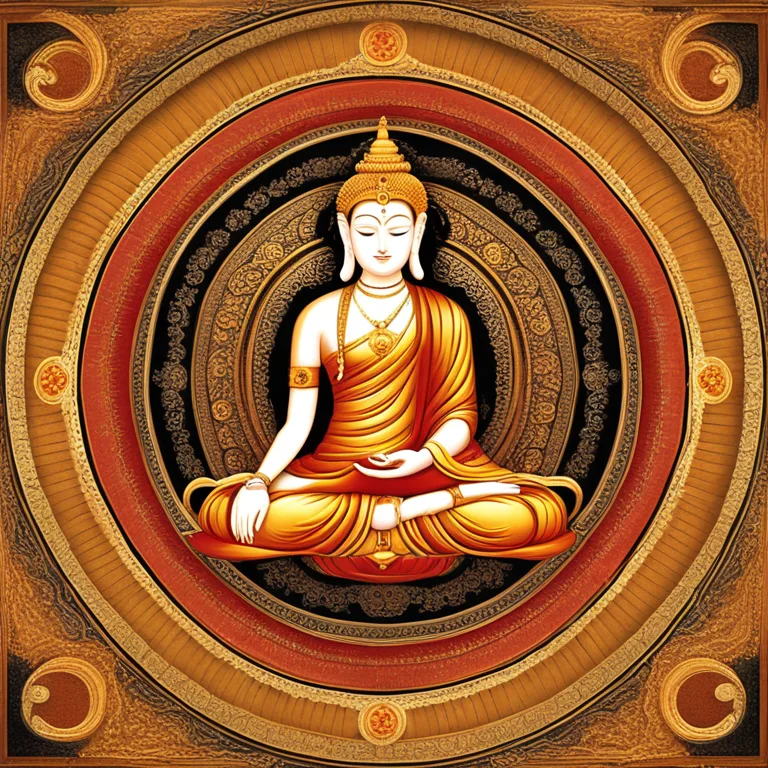
A Guide to Japa Meditation Practices
Learn the practices of Japa Meditation and how it can enhance your spiritual journey with our concise guide.
article by Hina Kurosawa
Introduction to Japa Meditation
Japa meditation is an ancient practice that integrates the repetition of a mantra or a divine name with the aim of focusing the mind and promoting a state of spiritual well-being. This technique is rooted in various traditions, with a strong presence in Hindu and Buddhist practices. Japa meditation is often performed with the use of mala beads, which serve as a tactile guide for counting the repetitions of the mantra, usually consisting of 108 beads, aligning with the spiritual significance of the number in Eastern traditions.

Selecting a Mantra
The foundation of Japa meditation is the mantra. A mantra is a sacred utterance, a syllable, word, or set of words in Sanskrit believed to have psychological and spiritual power. Choosing a mantra is a personal journey and can be specific to the individual’s spiritual goals, or it could be suggested by a teacher or drawn from traditional texts. Popular mantras include "Om," "So-Ham," "Om Namah Shivaya," among others. It is important that the mantra resonates with you personally, as you will be chanting it repeatedly.

The Role of Mala Beads
Mala beads are traditionally used in Japa meditation as a counting tool to keep track of the number of mantra repetitions. Each bead marks the chant of the mantra, allowing the practitioner to focus fully on the sounds and vibrations of the mantra, rather than on counting. Holding the mala in the right hand, the user will drape it over the middle or ring finger and use the thumb to count each bead, starting from the guru bead, which is not counted but used as the starting and ending point of the meditation cycle.

Beginning Your Meditation
To begin Japa meditation, find a comfortable and quiet place to sit, where you will not be disturbed. Hold your mala beads comfortably in your hand, setting an intention or prayer before you start if you wish. Close your eyes to help withdraw from external stimuli and turn your focus inward. Start to recite your selected mantra either softly or silently, moving the beads with each repetition. Your pace should be natural, allowing the mantra to flow with your breath.

Finding Your Rhythm
As you continue with the chanting, you'll find a rhythm that feels right for you. This might be fast or slow, and it may change from one session to the next. Some find it helpful to align the mantra with their breathing to maintain a steady pace. It's common for the mind to wander during this practice; simply acknowledge any stray thoughts and gently return your focus to the mantra and the movement of the mala beads.
Closing the Session
Upon completing a full cycle of 108 repetitions, you will reach the guru bead once more. This bead is not crossed; instead, if you wish to continue, turn the mala around and go back the way you came. To finish your meditation, sit for a few moments with your eyes closed, breathing deeply and fully absorbing the benefits of your practice. You may set an intention for your day or express gratitude for the meditation before opening your eyes.
Integrating Japa into Daily Life
Japa meditation can be practiced at any time, though many people find it particularly powerful during the early morning or late evening. Even just a few minutes daily can be beneficial. Over time, this practice can become a sanctuary of peace in one's daily routine, potentially leading to greater awareness, focus, and connection to the divine.
Published: 12/20/2023
Modified: 12/20/2023
More predictions
Come back here soon to learn more about yourself and your future


Counting Meditation Techniques
An informative guide on the diverse range of meditation practices available in the modern era.


The Many Paths of Meditation
Discover the vast array of meditation techniques enriching diverse practices worldwide.


Meditation Methods to Reduce Blood Pressure
Discover effective meditation techniques that can aid in managing and reducing high blood pressure for better overall health.